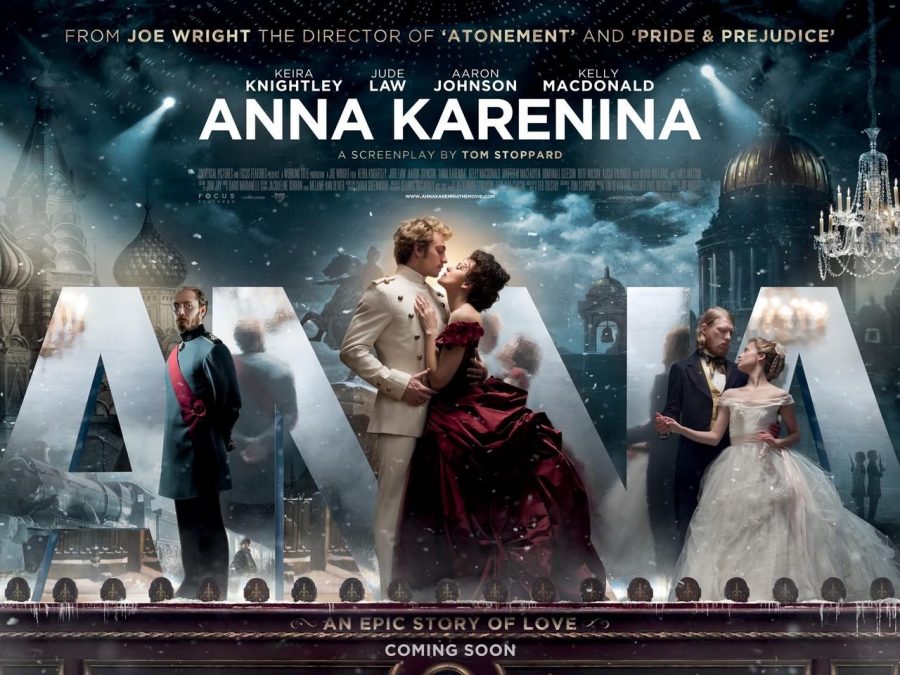
Theater is an art I can admire and see the value in, but it’s never been one I’ve enjoyed all that much. I’m never really able to connect, all I really see is the actors reciting lines, rather than characters interacting. Maybe it’s due to how much I love movies, but for whatever reason, plays tend not to work for me. So it’s a bit odd that “Anna Karenina,” Joe Wright’s (“Atonement,” “Hanna”) new film set almost entirely in a theater, works for the most part for me. It’s also somewhat fitting that my biggest problem with his adaptation of Leo Tolstoy’s novel is the film’s setting. The majority of the film is shot inside one small theater, in which we see actors moving in between the constructed sets or across the catwalk from scene to scene. It’s fairly off-putting and jarring at first, but Wright manages to craft it into a beautiful-looking and exquisitely made film that mostly overcomes its story or acting bumps.
Anna (Kiera Knightley, in her third outing with Wright) is married to the statesman Alexei Karenin (Jude Law) in Russia of 1874. Their marriage is more for status rather than love, and although there is some connection between them, it’s mostly buried under Alexei’s cold nature. Anna finds herself entranced by Count Vronsky (Aaron Johnson) who she soon embarks on an affair with. Tom Stoppard (“Shakespeare in Love,” “Brazil”) wrote a fairly straight 2-hour adaptation, which is impressive since it’s an 800-page book.
Wright then took that and added his own ideas for setting the film entirely in this theater, which in the end really seems to only have one purpose. Theater performances are far more grand and choreographed than those on film, but for this film Wright wanted those grand theatrical performances on screen. The performances work, but aside from that, it doesn’t seem like Wright had any other reason to set the film in the theater like this. The performances, especially from Knightley, are mostly great (save Aaron Johnson, who just feels really miscast). Especially impressive is how the actors are never thrown by the theatrical elements, but still for the audience it just feels out of place.
Even if you can get used to the theater, there’s still problems with the screenplay. In distilling down the novel it seems Stoppard tried to keep many major subplots. For instance, there are other romances that are meant to give us more insights into love, all of which are either just quick glimpses that are massively underdeveloped, or very interesting but not given nearly enough screen time. All the stories, including the central one, bounce around in time, merely going from one chapter to another without really showing the development occur.
Despite all of that, Wright manages to bring his usual stylistic elements to the film to make it more engaging. It’s some of the best production design and costumes of the year, and gorgeously shot as well. Wright manages to make such an exciting, big film shot in such a small place, which is really incredible in its own right. Wright is one of my favorite filmmakers because he understands how important music is to a movie, and yet again (just like in his previous films) integrates a great score with the action onscreen.
It’s a bit of a disappointment when compared to the storytelling in “Atonement,” but at the very least Wright executes the troubled screenplay in a captivating manner, with a generally good cast and a fantastic production team. Wright’s “Atonement” is still a much better film, but you could certainly do worse than “Anna Karenina” when it comes to costume dramas of this sort.
3.5/5 Stars


